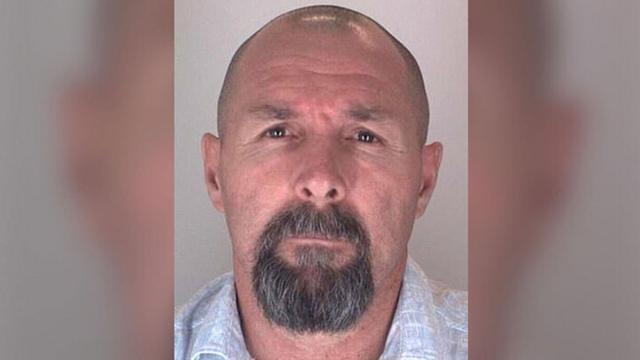
In the summer of 2013, a Moscow restaurant owner was murdered in the Russian capital. A hooded man sprang from a bike and shot his victim twice before fleeing.
Six years later, an exiled Chechen commander, Zelimkhan Khangoshvili, was assassinated in a crowded Berlin park in eerily similar circumstances, by a man on a bike wielding a silenced Glock 26 in broad daylight.
The offender was arrested after throwing a revolver and wig into the River Spree near the Reichstag, the building that houses the German parliament.
A passport containing the name “Vadim Sokolov” was discovered on the Berlin assassin, but authorities immediately determined that this was not his name after all.
Who is Vadim Krasikov?
The bald, heavily built guy they had arrested was Vadim Krasikov, a Russian national with ties to the FSB, the Russian intelligence service, and the primary suspect in the 2013 murder in Moscow.
In a recent interview with Tucker Carlson, Russia’s President Vladimir Putin appeared to confirm claims that his government was negotiating the release of “patriot” Krasikov in exchange for American journalist Evan Gershkovich.
This month marks one year since Gershkovich, a Wall Street Journal journalist, was jailed in Russia on espionage charges, denied by him, his employer, and the US government.
Gershkovich isn’t the only American in a Russian jail whose destiny may be linked to Krasikov’s. Former US Marine Paul Whelan and US-Russian citizen Alsu Kurmasheva have both been detained in Russia on politically motivated charges.
According to his associates, even the late Russian opposition leader Alexei Navalny, who was serving a 19-year prison sentence in Russia, was involved in a Krasikov-related swap before his death. Following the Russian election, President Putin stated that he had promised to release Navalny in exchange “for some people” jailed in the West, but the White House stated that this was the first time it had heard of such a deal.
If President Putin’s price remains unchanged, the most plausible option for obtaining the release of the jailed Americans would be a complex prisoner swap for Krasikov, which would require the collaboration of Germany, the United States, and Russia.
Roderich Kiesewetter, a German politician, told the BBC that the arrangement would force Berlin into “hostage diplomacy”. So, why does Putin appear so keen to reclaim Krasikov?
Krasikov’s background, or lack thereof, provides the first hints to a suspected Kremlin involvement in the Berlin murder.
According to documents obtained by the investigative website Bellingcat, he was wanted in connection with the murder in Moscow in 2013. However, two years later, the arrest order was lifted, and the “Vadim Krasikov” identity vanished into thin air.
That’s when “Vadim Sokolov”, 45, appeared. In 2015, he obtained a passport, and in 2019, a tax ID number.
The German government will eventually decide whether Krasikov can return to Russia
A German court determined that this material could only be approved by the Kremlin, implying that Vadim Krasikov received state assistance for the Berlin murder.
“Russian state authorities ordered the accused to liquidate the victim,” a German presiding court stated after ordering Krasikov to life imprisonment.
His victim, Zelimkhan Khangoshvili, was a Chechen rebel commander from 2000 until 2004, when Chechnya was fighting for independence from Russia.
To Western observers, Khangoshvili appeared to be one of several Moscow-ordered assassinations of Chechen exiles in Europe and the Middle East.
The Kremlin denied arranging the Berlin murder and characterized Krasikov’s conviction as “politically motivated”.
However, in his Tucker Carlson interview, President Putin appeared to admit that talks were underway for a swap involving a Russian “patriot” who had “eliminated a bandit” in a European capital.
According to Ulrich Lechte, a member of the German government’s foreign affairs committee, President Putin’s desire to retrieve Krasikov is “a clear admission of guilt and shows how unscrupulously and unchallenged Russia has been able to act in our country”.
According to prosecutors at his trial, Vadim Krasikov worked for Russia’s secret service, the FSB, in the highly secret ‘Vympel’ branch.
“Its official remit is counter-terrorism operations at home, but it has in many ways returned to its original roots, as a unit tasked with covert ‘wet-work’ – sabotage and assassination – abroad,” said Putin historian and Russian security specialist Mark Galeotti to the BBC.
Krasikov met Putin at a target shooting range while working for Vympel, owned a BMW and a Porsche, and traveled frequently for work, according to an interview with his brother-in-law with The Insider.
An association between Krasikov and the FSB could explain why Vladimir Putin, a former foreign intelligence officer, would be willing to hand over Evan Gershkovich, a high-value prisoner.
However, Mark Galeotti believes a potential deal reflects Russia’s social contract with foreign agents rather than Krasikov’s worth.
“It [Russia] says ‘look, if you do get caught, we will get you back, one way or the other. It may take a long time, but we will get you back’,” Mr Galeotti said. “That’s very important for getting people to put themselves in potentially very dangerous situations.”
However, the German government will eventually decide whether Krasikov can return to Russia.
